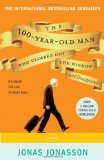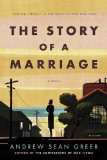Summary | Excerpt | Reviews | Beyond the book | Read-Alikes | Genres & Themes | Author Bio

Some authors write as though their words have been squeezed out
of a tube then worked into shape with a palette knife. Jane Gardam's writing seems
spilled as effortlessly onto the page as a watercolor wash, deceptively
uncomplicated yet rich in detail, depth and drama. In this companion piece to
the compelling and defiantly funny
Old Filth, Gardam adds layers of nuance to the lives and
relationships of Edward, known as Eddie, and Elizabeth (Betty) Feathers.
While Old Filth is narrated primarily from Eddie's point of view, The
Man in the Wooden Hat focuses more on Elizabeth, and cannily asks whether
we can ever truly know anyone, even ourselves.
Old Filth (2006), which you don't have to have read to enjoy The Man
in the Wooden Hat, takes its name from the derogatory acronymn FILTH -
Failed In London Try Hong Kong, a reference to the many young and not so young
Brits who, like Eddie, would find that their careers flourished after moving to
Hong Kong (a British Crown Colony from 1841 to 1997). In Eddie's
case he left London a struggling young barrister, and became a wealthy expatriate
lawyer and then a distinguished judge. In Old Filth,
Betty Feathers was something of an enigma. Viewed primarily through her
husband's eyes, it was easy to assume that there wasn't much to know, although
there were glimpses of something deeper, touched on so lightly that they could
almost be overlooked.
In The Man in the Wooden Hat Gardam rewinds the clock back to post World
War II Hong Kong to retell the history of their fifty year marriage lived
against the backdrop of Britain's declining empire, this time from Betty's perspective.
Narrative commentary is rare in Gardam's books. The characters tend to tell
their stories through dialogue and private thoughts that flash back and forth
through time. Betty's life reveals several occasions when the angle of
light illuminating a particular moment changes, giving her a fresh perspective
which results in a surprise twist. Like most people, she is not entirely
focused on that moment. It brings to mind when my children were small and they
would show me a scraped knee or elbow, unable to recall how it happened.
Invariably I would stump them with the question: "Weren't you there when it
happened?" Likewise Elizabeth was not entirely present at certain key episodes
when her life and future might have turned out better, if given her full
attention. Alas she is no more attentive than the rest of us. Thus when Eddie's
archenemy, the dashing Terry Veneering, tells her he will send a car for her
within twenty-four hours of her engagement to Feathers she numbly agrees – or at
least, doesn't disagree. It is, for her, the first of several instances when her
fate turns on a fleeting distraction, a wisp of carelessness.
Despite evidence to the contrary, when Betty meets Eddie she is not a flighty or
immature 28-year-old. Her union to Eddie is described as "a prudent
marriage not for love" because she can think of no good reason not to marry him: "I have no aim. No certainty. I am a postwar invertebrate ... I
have settled on exactly what my mother would have wanted: a rich, safe, good
husband and a pleasant life." Betty survived internment as an enemy
national in a Japanese internment camp in Hong Kong during the war, where she
lost both parents. We know little of her pre-Eddie existence, except
that, like Eddie, she is a "Raj orphan" who is set to inherit a fortune once she
turns thirty and that she loves gardening. Her narrative
suggests a woman of above average intelligence and intuitiveness. Except perhaps when it
concerns herself.
One thing she makes perfectly clear is the degree of her sufferance of Edward's
absences. Due to his job as a lawyer, Eddie travels frequently, leaving
Elizabeth alone for long periods of time. However, even when he is present he is
emotionally absent, taking little note of the things his wife values and making
major life decisions without consulting her. It eventually becomes clear though
that she does not suffer alone. She suffers differently perhaps and longer, but
Edward grows into his own forbearances as well. Because despite Elizabeth's
promise to never leave him, she does nevertheless close him out of parts of her
life. And by the time she becomes acquainted with the eponymous man in the
wooden hat he may mean more to all three of them (Eddie, Betty and Terry) than
any of them would like to admit.
Betty's voice perfectly captures the period and her position as she keeps up
appearances while pushing the bounds of convention. Her story illuminates
a world faded but still clear in the memories of many still alive (Hong Kong was
returned to the Chinese twelve years ago and, like Eddie and Elizabeth, the last
generation of "Raj orphans" have reached retirement age).
Useful to Know
The fathers of so called 'Raj orphans' lived and worked in The Indian
Subcontinent or other parts of South-East Asia, either as administrators or in the military.
Oftentimes, the children
were sent back to England for their education usually at boarding school,
staying with foster parents or relatives during the holidays, and often not
seeing their parents for years at a time.
Twice in Old Filth, similarities between Eddie's early life and that of
Rudyard Kipling are mentioned, and in her
acknowledgments Gardam cites her indebtedness to both Kipling’s autobiography,
Something of Myself, and his short story
Baa Baa Black
Sheep. Whereas Rudyard Kipling was born in Bombay in 1865
and sent to Britain to live with foster parents when he was six (with his sister
who was three), Eddie was born in Malaya (his father worked in Singapore) many
decades later in, one assumes, the 1920s.
Although The Man in the Wooden Hat is the second novel about Eddie and
Elizabeth, Eddie stars in the title story of Gardam's short
story collection, The People of Privilege Hill (2007), and also
makes an earlier appearance in the title story to Missing the Midnight
(1997).
![]() This review
first ran in the November 5, 2009
issue of BookBrowse Recommends.
This review
first ran in the November 5, 2009
issue of BookBrowse Recommends.

If you liked The Man in the Wooden Hat, try these:

The 100-Year-Old Man Who Climbed Out the Window and Disappeared
by Jonas Jonasson
Published 2012
A reluctant centenarian much like Forrest Gump (if Gump were an explosives expert with a fondness for vodka) decides it’s not too late to start over...

by Andrew Sean Greer
Published 2009
From the bestselling author of The Confessions of Max Tivoli, a love story full of secrets and astonishments set in 1950s San Francisco.
Your guide toexceptional books
BookBrowse seeks out and recommends the best in contemporary fiction and nonfiction—books that not only engage and entertain but also deepen our understanding of ourselves and the world around us.